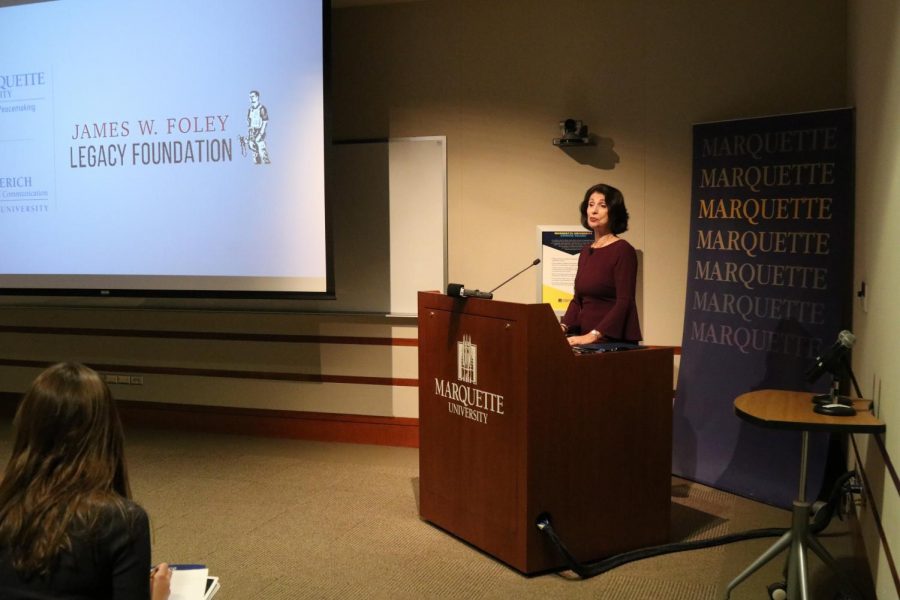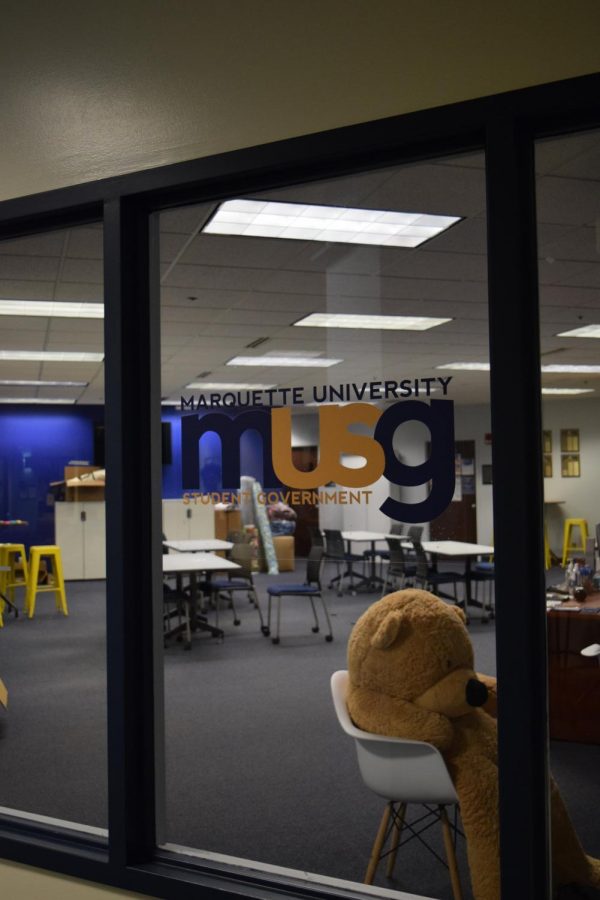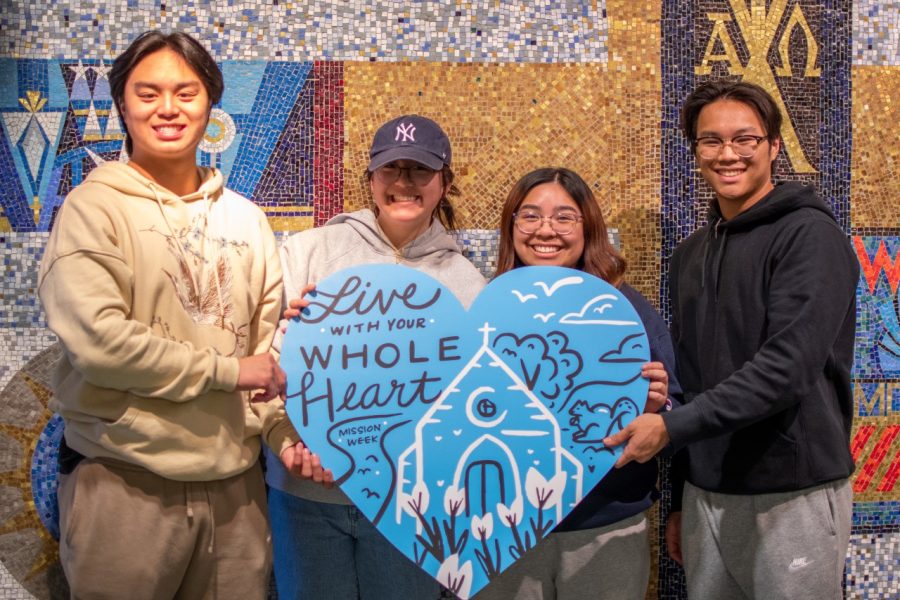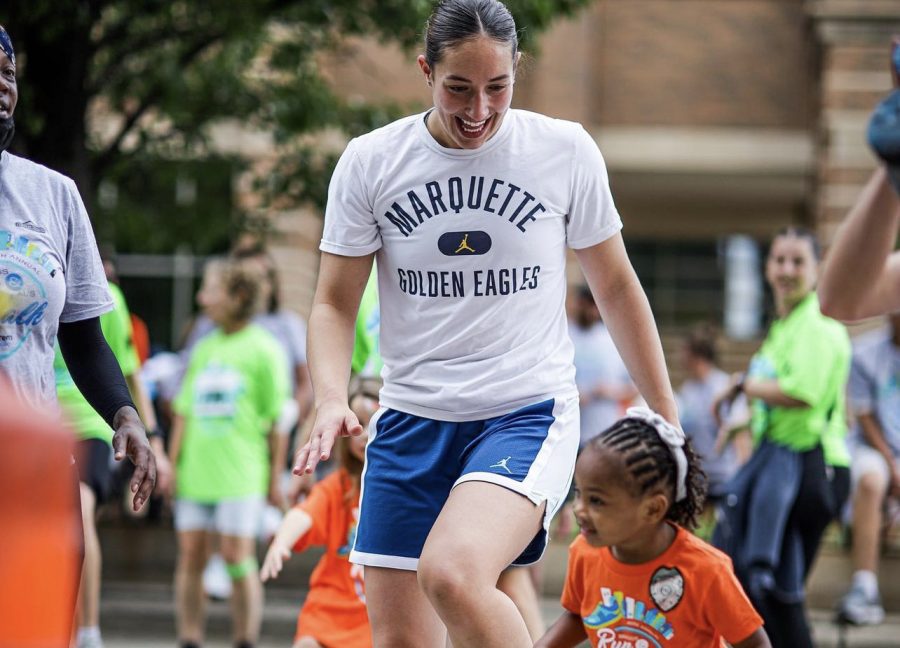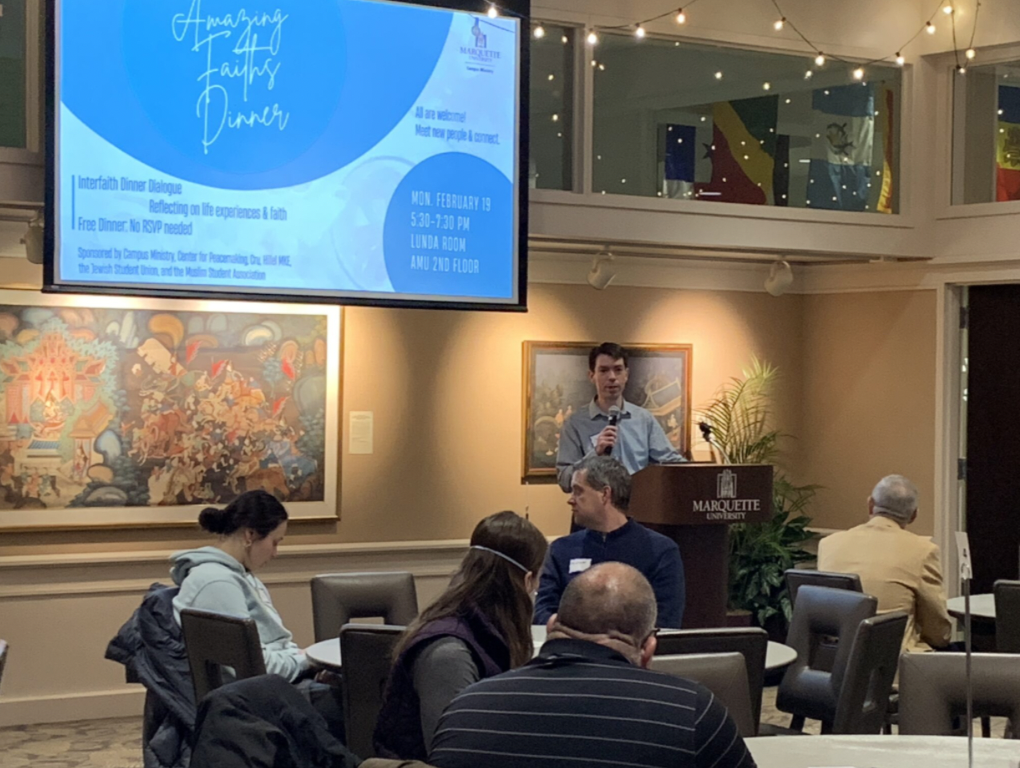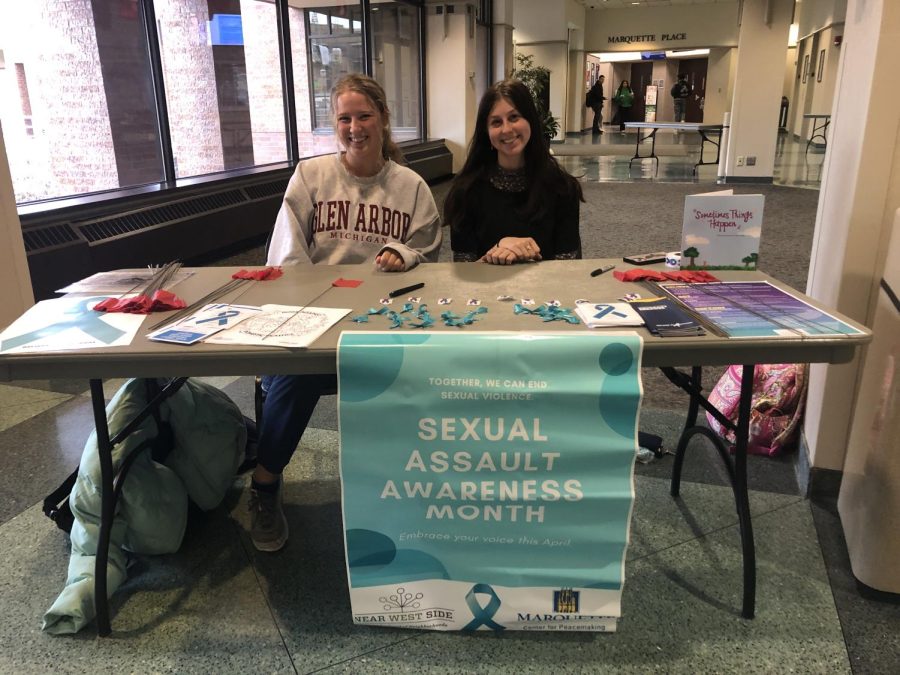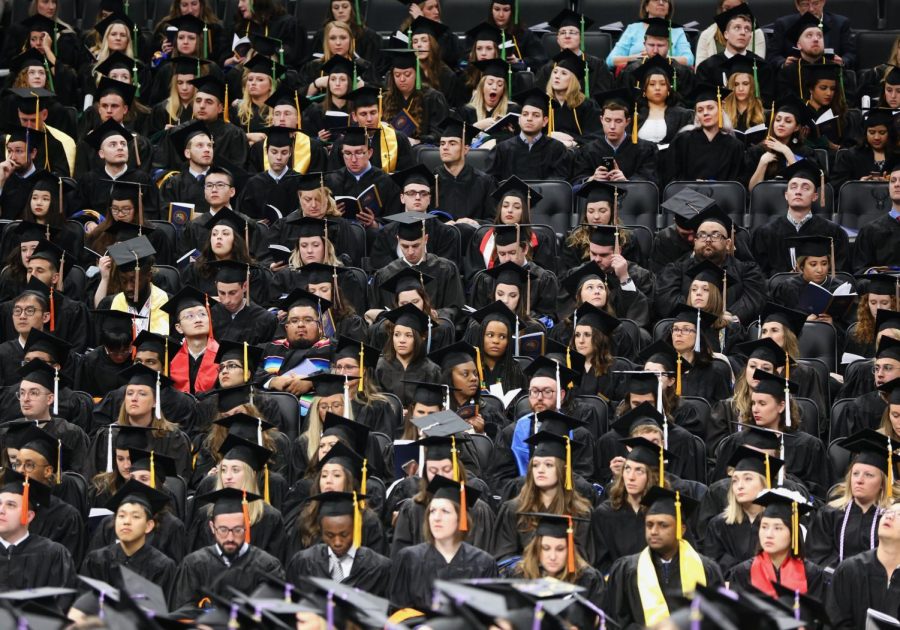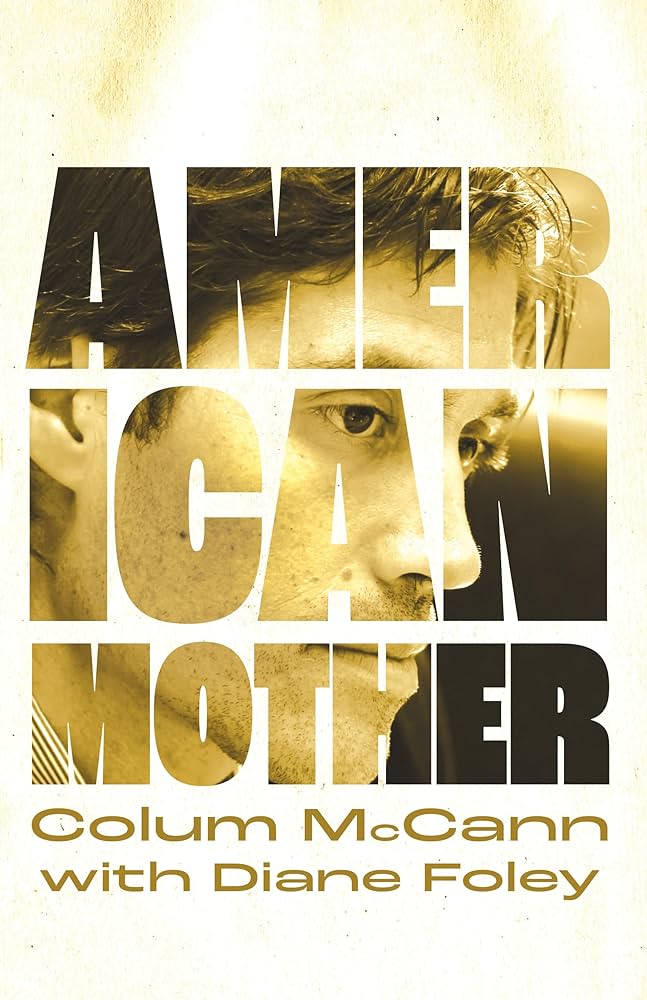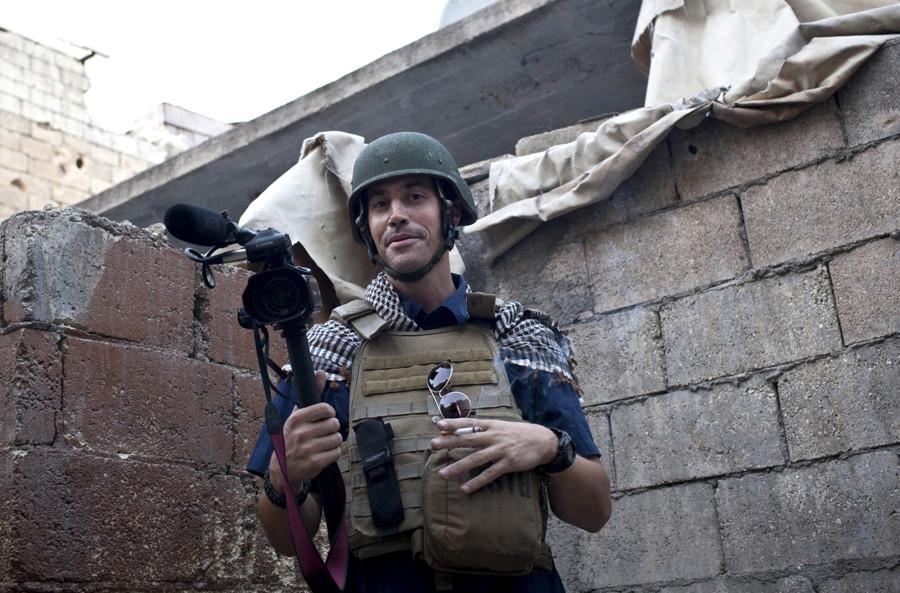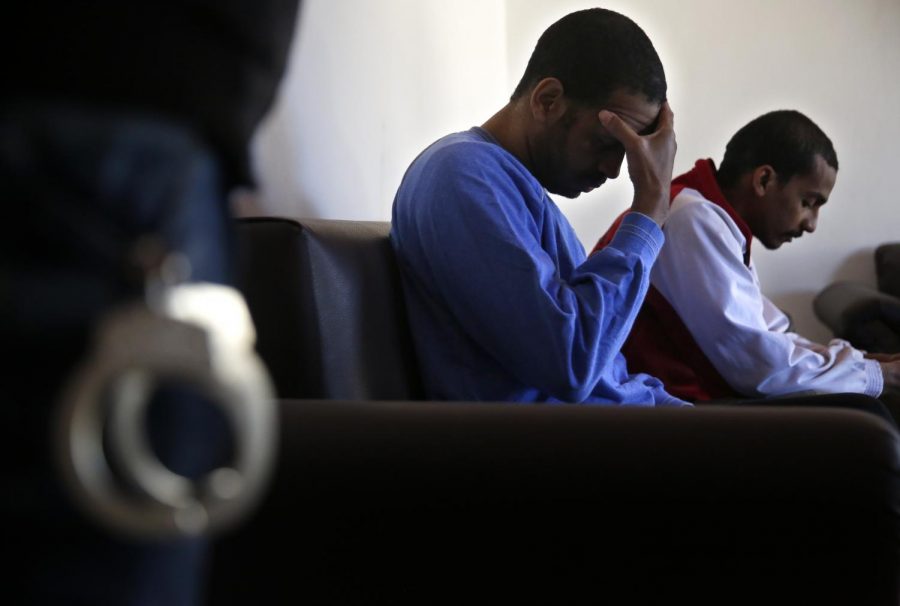“My hope really has just been to continue Jim’s legacy because Jim is the one who challenges me,” Diane Foley said. “He’s the one who really has found his voice and passion for social justice here at Marquette. I’m just merely trying to carry on some of what Jim would want to come out of his tragic murder.”
Diane, mother of Marquette alumnus and slain journalist James Foley, visited Marquette Nov. 5-9 for the Center for Peacemaking’s Distinguished Peacemaker series.
A small group of ISIS members murdered James Aug. 19, 2014. They captured him Thanksgiving Day in 2012 and detained him for the next two years in a block cell where they tortured him and other hostages from around the world.
After James’ public death in ISIS’s “Message to America,” Diane started the James W. Foley Foundation, where advocacy for journalists’ education and protection are put together in a journalist safety guide. Diane goes to universities, cities and abroad to talk about the foundation and raise awareness of the risks journalists face.
“To me, it’s a way to keep Jim alive, to keep his goodness, his hope. Jim just believed in the world. He believed that good people can make a difference,” Diane said. “It was something very beautiful that Jim had in his kind of unassuming, fun and loving way.”
Diane said her son was a character and a wonderful person who was fun to be around.
“The idea is we bring people that are doing things nationally or internationally that promote aspects of nonviolence that relate to the mission at the Center for Peacemaking,” Thomas Durkin, research and grant coordinator at the center, said.
Durkin is also one of James’ closest friends. They met during their first week of freshman year in 1992.
“We crossed paths and started a conversation and became fast friends. I don’t want to count the years, but (we were friends) since the first week of freshman year on this campus,” Durkin said.
Durkin said the center reached out to Diane because of her work with the James W. Foley Foundation and the work it is doing for journalists’ safety in response to James’ death.
When she tells James’ story, Diane said it is hard reliving what everyone went through.
“But the cool thing is that we get to share Jim’s hope for the future and his hope that even in the midst of awful things that happen, that something good can happen,” she said.
James was once captured in Libya for 44 days in 2011. When he returned home briefly, he told his family and friends he wanted to go to Syria. Diane said many disagreed with his choice.
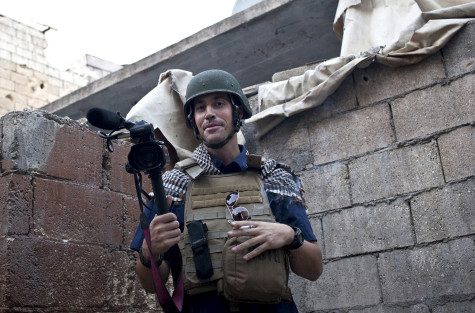
Photo by Associated Press
“But he believed in it. If someone believes in something and someone is doing what they’re passionate about … Jim’s place is with people. That’s where he is comfortable,” Durkin said. “As a teacher, a writer and then as a journalist, he believed in what he was doing. So how do you tell somebody don’t do something because it’s dangerous?”
Durkin said he was worried but supportive of James because he truly believed James was meant to tell people’s stories.
Jack Began, a freshman in the College of Communication, attended Diane’s keynote speech Nov. 7 and said that James’ story affected him.
“I think anyone that listens to his story will be affected in a positive way. His message resonated with me. He pursued what made him happy and what he thought was the most important to him,” Began said. “I think that’s what life’s all about — pursuing what makes your heart full.”
The foundation’s mission is to advocate for the safe return of all Americans detained abroad, to protect independent conflict journalists and to educate regarding threats to freedom, according to the James W. Foley foundation website.
Diane said the biggest challenge wasn’t starting the foundation, but keeping it going, especially with her background as a nurse practitioner.
“People were encouraging us to do something good. We had support from all over the world. That beginning was the easiest part. I don’t know beans about running a foundation, let alone starting a foundation, so I was wading into an area that was really alien to me,” she said.
Diane said a lot of challenges of the foundation were related to doing it in the right spirit and to continue James’ legacy, making it authentic yet viable.
“Jim was so multi-faceted that to carry on his legacy, to begin with, there are so many things that Jim was passionate about, but it wasn’t possible to try to do something for everything that he believed in,” Durkin said.
Durkin said James believed in helping young children, education and humanitarian causes and would have wanted something done about safety for journalists.
“You can’t do all of these things, but every time you feel like you’re going to drop one of those things because you really have to focus, you feel like you are letting Jim down because he believed in it so much,” Durkin said.
Durkin said that is where Diane’s persistence becomes very important.
“You can probably find some government officials who agree that Diane is persistent and that has helped us start to narrow, but it has been difficult to try to get to that point where you know exactly what you want to accomplish.”
Garrett Christiaens, a junior in the College of Communication, saw the screening of “Jim: The James Foley Story” Nov. 5 in Cudahy Hall. The film screened to an audience and was followed up with a Q&A session from Diane herself, along with Durkin.
“Something that stood out to me was what his mom said during the talk back,” Christiaens said. “She said she was so happy Jim went to Marquette. She said that he learned so much about faith, having compassion for those oppressed and he learned about social justice.”
Christiaens said Diane’s presentation at the end of the movie gave him chills because of how she said James embodied what it meant to “Be the Difference.”
“She said it brought her great joy to know that sitting in the audience, there was a number of ‘James Foleys’ in the audience and walking around campus … students that are compassionate, have the drive and moral courage to stand up for what they believe in,” Christiaens said.
The safety guide created by the foundation is not just for journalists abroad. The guide also teaches risk assessments for journalists reporting in their own communities and country.
“We aren’t training them to be safe at their craft,” Durkin said, who played a role in editing and putting together the safety guide for the foundation. “As journalism changes and we have less bureaus and less protection and more freelancers, it gets harder and harder because it’s not easy getting this training.”
As Thanksgiving nears, its significance is not lost to Diane and Durkin, and they reflect on what they are most thankful for.
“I am thankful to be at the Center for Peacemaking,” Durkin said. “I am thankful students care enough to ask what we’re doing and are concerned. It’s hard for me to feel negative about anything when I see all this good happening, despite the trouble that you see all around us. I am just thankful for where I ended up.”
Durkin added that 100 individuals came in to hear Diane speak as a peacemaker and about James. He said telling James’ story each time reopens a wound, but it would be worse if he wasn’t talking about it.
“If I wasn’t sharing who Jim was and the work the foundation is doing … I feel like this is part of what I am and who I am, so I feel like I need to do it,” he said.
“We seek to inspire moral courage in our government, to dare to stand up for the American who might be in that situation, in journalism, so that journalism will persevere … in finding out the truth about issues and inequities and just in everyday living,” Diane said. “So that people can dare to do right with their lives, to do the right thing in the choices they make. That’s where we try to encapsulate what Jimmy has challenged me with, with us with.”
Diane said she has every reason to be grateful because her life has been opened to wonderful inspirations and possibilities.
“I love being with students and I can see why Jim did too, because you guys are the future. It just makes me hopeful when I speak to students who care. … The world is a mess, a lot of hatred and division, serious issues and yet in our little way, we are going to try to make a difference and that’s inspiring. I have so much to be grateful for.”

